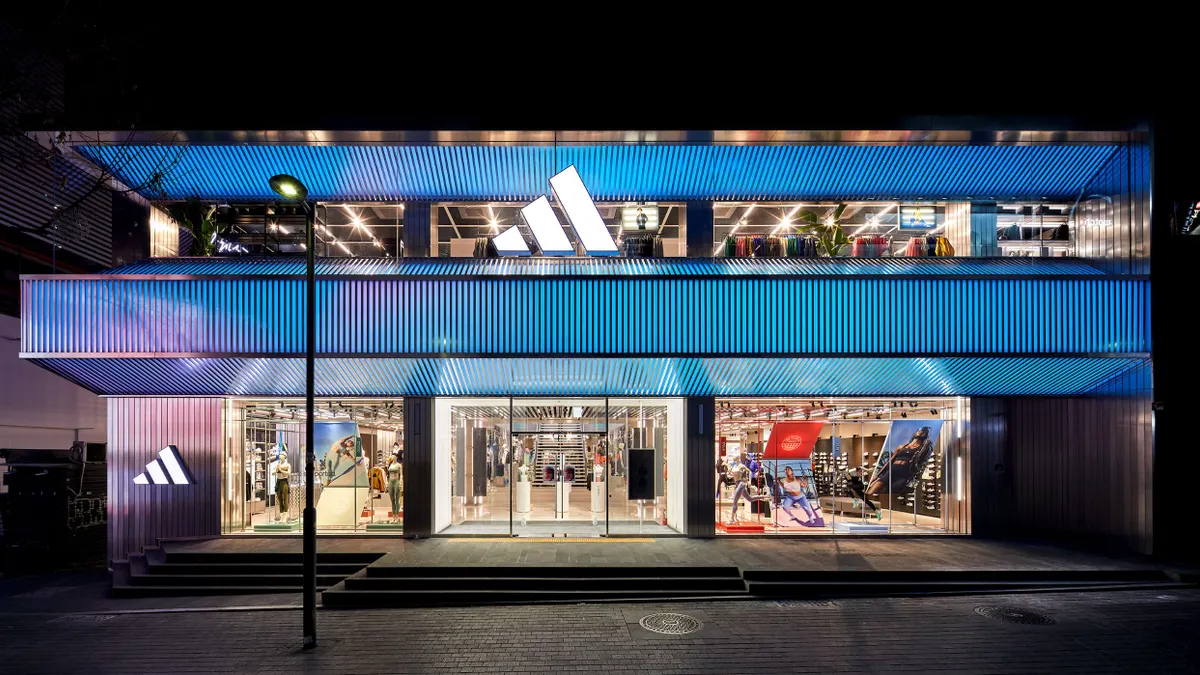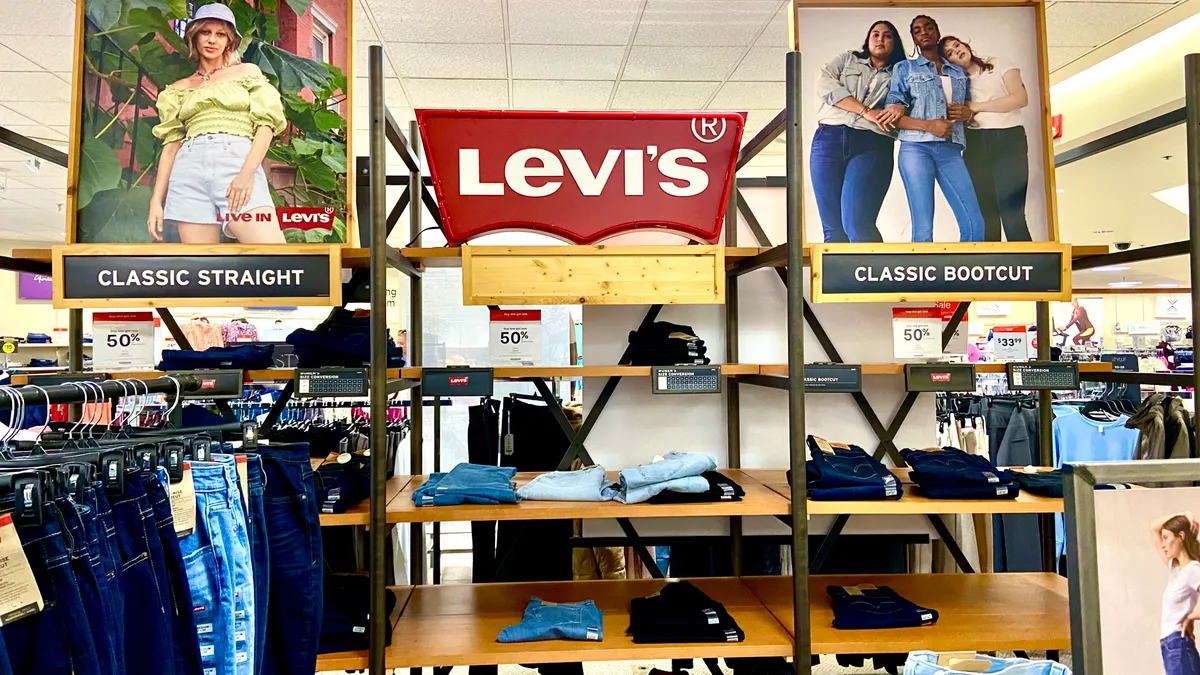At the start of 2020, a large swath of the retail industry was on shaky ground. The previous year saw a number of bankruptcies and companies rightsizing their physical footprints, leading to over 9,500 store closures.
A handful of retailers announced hopeful turnaround plans. Macy's outlined Polaris — a strategy that involved a massive supply chain overhaul, fresh merchandising strategy, and e-commerce and loyalty upgrades. Bed Bath & Beyond's turnaround efforts in part involved spending up to $400 million on store remodels, supply chain improvements, and IT and digital projects. Kohl's creative efforts included dynamic partnerships and the introduction Amazon return services to its brick-and-mortar locations.
Retailers were steadying themselves and also thinking about the future, their customer, and how to better position themselves financially via deals, mergers and acquisitions.
Then the pandemic hit. And everything stopped — literally. Most companies deemed nonessential temporarily shut their doors. Many retailers announced furloughs and layoffs. And all those visionary deals? Many of them have either collapsed or been put on ice as the industry scrambles to survive.
"[T]he sheer number of deals coming apart in such a short time shows how quickly things are changing," said Joel Rampoldt, managing director in the retail practice at AlixPartners, in an email to Retail Dive. "It's very tough to get a clear view on a valuation when the basic premises under which the company operates — whether they can open at all, how many customers they can serve, customers' willingness to get out and shop — are all in flux."
But, it's not entirely accurate to blame the disintegration of all announced deals on COVID-19. In some cases there is a direct link between the pandemic and halting business progress, but some deals were "underpinned by unrealistic assumptions about the strength of the consumer franchise, the importance of physical stores vs e-commerce, and the value of the underlying real estate," Rampoldt said. "These are all issues that pre-date COVID-19, though they have been amplified by it."
And some of the decisions below illustrate that. A number of companies' problems have roots that can be traced to the previous year, with the global health crisis acting as a final blow. Here are five deals that have been halted thus far in 2020:
1. Sycamore Partners backs out of a deal to take over Victoria's Secret
At the end of February, Victoria's Secret's parent company, L Brands, announced that it entered into a deal for private equity firm Sycamore Partners to take a majority interest in the company. Sycamore was prepared to take a 55% stake in Victoria's Secret for around $525 million, with L Brands retaining a 45% stake in the company.
The deal was part of a larger plan to separate L Brands' lucrative Bath & Body Works brand from its troubled apparel entity, but by April the agreement was in peril, with Sycamore delivering a notice to terminate their arrangement. The firm said that L Brands violated its agreed upon obligations when it temporarily closed its doors and laid off staff. Those actions, though, were enacted by a wide swath of retailers deemed nonessential during the months of March and April as COVID-19 spread throughout the United States.
L Brands, in a countersuit, claimed Sycamore was inappropriately leveraging the pandemic to get out of the deal. L Brands said the move was an "apparent case of buyer's remorse" and alleged the firm had used the global health crisis as a "pretext for its invalid and improper termination." The retailer also alleged that, in the weeks leading up to the complaint, Sycamore reiterated that it wanted to buy the lingerie company but wanted to do so at a lower price.
By early May, the companies announced a "mutual termination" of their proposed deal. In a press release, L Brands outlined a strategy that included separating out its brands by establishing Bath & Body Works as a "pure-play" company while working to streamline Victoria's Secret so it can operate as a standalone business.
2. J. Crew has second thoughts about a Madewell IPO
The Madewell spinoff had problems off the bat. The sister brand to J. Crew is known for its more relaxed vibe, and for strong sales even as its counterpart struggled. In September 2019, Chino Holdings, J. Crew's parent company, filed an initial public offering for Madewell, which was to be renamed Madewell Group. Proceeds from the IPO would repay J. Crew's debt and the two companies would split into separate entities.
The deal was questioned from the start. The same day as the proposed IPO, J. Crew reported earnings and revealed that sales at its namesake brand dropped 7% in the quarter, while its net loss expanded to $44.2 million from $6.1 million the year prior. The deal raised flags for analysts, including those with Moody's Investors Service who said that the company was overestimating Madewell's value. The analysts also indicated that neither brand had much growth potential, and were doubtful about J. Crew's ability to turn around its brand.
The transaction on the IPO was to be concluded in early March, but the company announced that it was being delayed, and would instead be completed by April 30. The financial markets were beginning to show signs of uncertainty as a reaction to COVID-19, and COO Michael Nicholson said that the new date of the IPO would give the company "additional time to thoroughly assess all alternatives."
In May, J. Crew Group filed for bankruptcy and said that Madewell would remain part of the company. In court papers, Nicholson said that upheaval in credit markets due to the pandemic thwarted the Madewell IPO.
3. Gap doesn't spin off Old Navy
In February 2019, Gap Inc. announced that it would create two independent companies, with Old Navy in one corner and "NewCo" in the other, which would encompass Gap, Athleta, Banana Republic, Intermix and Hill City. The retailer said that the deal was meant to maximize "focus and flexibility, align investments and incentives to meet its unique business needs." The bigger picture was, up until that point, Old Navy was the better performer and essentially led the company.
At the time of the announcement, president and CEO of Gap Inc., Art Peck, was to become the CEO of NewCo, while the CEO of Old Navy, Sonia Syngal, was to continue to lead that brand but as a standalone company.
As the year progressed, though, doubts about the deal going through began to emerge. In November, Peck stepped down from his role. At the time of his departure, the company sidestepped mentions of the company splitting. Instead, in the following weeks, the larger parent company insisted the agreement was to go forward in the new year, even as the plan was delayed and details regarding the specifics of the go-forward plan were murky.
In mid-January of 2020, Gap Inc. announced that the deal to split off Old Navy was over. Gap Inc. said that "the cost and complexity of splitting into two companies, combined with softer business performance," were factors in terminating the proposed agreement.
4. Schick maker calls off Harry's merger
Back in February, prior to the pandemic's full impact on the U.S., the Federal Trade Commission got in the middle of a proposed acquisition of Harry's shaving brand by Schick owner Edgewell. The FTC said that the deal would "eliminate one of the most important competitive forces in the shaving industry" and "inflict significant harm on consumers of razors across the United States."
The acquisition, which was first announced in May 2019, was a $1.37 billion cash and stock transaction and was expected to be beneficial for both parties. Edgewell, which traces its start to 1875, had depth of retail relationships, manufacturing, scale and distribution operations, while Harry's contributed its technology, web platform, data and digital performance to the partnership. The deal was expected to close in the first quarter of 2020 and, upon its completion, the company was to be run by Edgewell executives.
The companies put out a joint statement on Feb. 3 challenging the FTC's decision. A week later, Edgewell said that it terminated the merger agreement with Harry's because of the FTC's lawsuit to block the transaction.
"We are disappointed by the FTC's decision and continue to disagree with its position," Rod Little, Edgewell's CEO, said in a statement at the time. "After extensive consideration and discussion, and given the inherent uncertainty of a potential trial, the required investment of resources and time and the distraction that a continuing court battle would entail, we determined that proceeding with our standalone strategy is the best course of action for Edgewell and our shareholders."
Harry's responded by telling Edgewell that it would pursue litigation, a reaction that Edgewell said had "no merit."
5. Stein Mart's attempt to go private falters
In January, Stein Mart announced that it was entering into an agreement to be acquired by Kingswood Capital Management and become a private company. "We believe that this transaction is in the best interest of all Stein Mart stakeholders, including our many loyal employees," Stein Mart board member Richard Sisisky said at the time of the announcement.
Stein Mart had been struggling to stabilize its finances for years, with net sales falling every year since 2016. The retailer did a number of things to positively position itself, including adding Amazon lockers to stores, varying product offerings with the introduction of fine jewelry and kids apparel and toys, expanding BOPIS services to all stores and introducing an enhanced loyalty program.

The deal was expected to close in the first half of 2020, but then the pandemic hit the U.S. and by mid-April the agreement fell apart. In a press release, the companies said that they "mutually agreed to terminate their merger agreement," in response to the COVID-19 pandemic.























